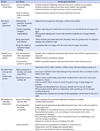Abstract
Purpose
The purpose of this qualitative study was to evaluate nursing students' experience of incivility during clinical practice.
Methods
Data were collected from 11 in-depth interviews. The main question was “Could you describe your experience of incivility during clinical practice?” The qualitative data from the field notes and transcriptions of the interviews were analyzed using Colaizzi's method.
Results
The experiential themes of incivility to nursing students during clinical practice were ‘exposure to verbal abuse’, ‘receiving unjust reproaches’, ‘treated as an insignificant person’, ‘excluded from nursing as a bothersome person’, and imidated in an unfamiliar atmosphere'.
Conclusion
Nursing students experienced incivility in many ways and from a variety of sources, such as nursing staff, patients, patients' families, and other employees during clinical practice as part of the 3rd and 4th year curriculum. Therefore, it is necessary to provide a safer environment for clinical practice. Also finding solutions to these incivility problems should lead to improvement in students' clinical practice.
Figures and Tables
References
1. Ceravolo DJ, Schwartz DG, Foltz-Ramos KM, Castner J. Strengthening communication to overcome lateral violence. J Nurs Manag. 2012; 20(5):599–606. DOI: 10.1111/j.1365-2834.2012.01402.x.
2. Guidroz AM, Burnfield-Geimer JL, Clark O, Schwetschenau HM, Jex SM. The nursing incivility scale: Development and validation of an occupation-specific measure. J Nurs Meas. 2010; 18(3):176–201. DOI: 10.1891/1061-3749.18.3.176.
3. Galián Muñoz I, Llor Esteban B, Ruiz Hernández JA. User violence towards nursing staff in public hospitals. Murcia, Spain. Rev Esp Salud Publica. 2012; 86(3):279–291. DOI: 10.1590/S1135-57272012000300007.
4. Gopalkrishnam P. Workplace incivility and employee strain reactions: The moderating effects of perceived organizational support and job insecurity [dissertation]. Bowling Green (OH): Bowling Green State University;2011. 1–97.
5. Pearson CM, Andersson LM, Wegner JW. When workers flout convention: A study of workplace incivility. Hum Relat. 2001; 54(11):1387–1419. DOI: 10.1177/00187267015411001.
6. Dion MJ. The impact of workplace incivility and occupational stress on the job satisfaction and turnover intention of acute care nurses [dissertation]. Storrs (CT): University of Connecticut;2006. 1–168.
7. Park JW, Ha NS. Nursing students' clinical experiences. J Korean Acad Psychiatr Ment Health Nurs. 2003; 12(1):27–35.
8. Ferns T, Meerebeau L. Verbal abuse experienced by nursing students. J Adv Nurs. 2008; 61(4):436–444. DOI: 10.1111/j.1365-2648.2007.04504.x.
9. Magnavita N, Heponiemi T. Violence towards health care workers in a public health care facility in Italy: A repeated cross-sectional study. BMC Health Serv Res. 2012; 12:108–117. DOI: 10.1186/1472-6963-12-108.
10. Park JA, Lee EK. Influence of ego-resilience and stress coping styles on college adaptation in nursing students. J Korean Acad Nurs Adm. 2011; 17(3):267–276. DOI: 10.11111/jkana.2011.17.3.267.
11. Jeong YH, Lee KH. Effect of verbal abuse experience, coping style and resilience on emotional response and stress during clinical practicum among nursing students. J Digit Converg. 2016; 14(3):391–399. DOI: 10.14400/JDC.2016.14.3.391.
12. Thomas CM. Teaching nursing students and newly registered nurses strategies to deal with violent behaviors in the professional practice environment. J Contin Educ Nurs. 2010; 41(7):299–308. DOI: 10.3928/00220124-20100401-09.
13. Park HJ, Kang HS, Kim KH, Kwon HJ. Exposure to workplace violence and coping in intensive care unit nurses. J Korean Acad Psychiatr Ment Health Nurs. 2011; 20(3):291–301. DOI: 10.12934/jkpmhn.2011.20.3.291.
14. Jung HJ, Lee YS. Nurses' experiences of verbal abuse in hospital setting. Health Commun. 2011; 6(2):118–126.
15. Kim HS, Yin HW, Jeong SH, Jo SJ. An association among verbal abuse, social support and turnover intention for special unit nurses in a hospital. Korean J Occup Environ Med. 2009; 21(4):388–395.
16. Kim HJ, Jung MA. Effect of family function and self-efficacy on suicidal ideation in university students. J Korean Acad Soc Nurs Educ. 2010; 16(1):43–50.
17. Kim SH, Cho HJ, Dong JH, An JM, Yun BR, Lee GY, et al. Verbal abuse, verbal abuse response, and stress on verbal abuse of nursing student in clinical training. J Soc Sci Res. 2011; 10:249–266.
18. Colaizzi PF. Psychological research as the phenomenological views. In : Valle R, King M, editors. Existential phenomenological alternative for psychology. New York, NY: Oxford University Press;1978. p. 48–71.
19. Patton MQ. Qualitative Research & evaluation methods integrating theory and practice. 4th ed. Thousand Oaks, CA: SAGE Publications;2015.
20. Kim SY, Park KO, Kim JK. Nurses' experience of incivility in general hospitals. J Korean Acad Nurs. 2013; 43(4):453–467. DOI: 10.4040/jkan.2013.43.4.453.
21. Andersson LM, Pearson CM. Tit for tat? The spiraling effect of incivility in the workplace. Acad Manage Rev. 1999; 24(3):452–471. DOI: 10.5465/AMR.1999.2202131.
22. Cortina LM, Magley VJ, Williams JH, Langhout RD. Incivility in the workplace: Incidence and impact. J Occup Health Psychol. 2001; 6(1):64–80. DOI: 10.1037/1076-8998.6.1.64.
23. Guba EG, Lincoln YS. Effective evaluation: Improving the usefulness of evaluation results through responsive and naturalistic approaches. San Francisco, CA: Jossey-Bass;1981.
24. Oh JH, Kim OS, Lee KL. Exposure to violence and coping behavior during the clinical practice of nursing students. J Korea Acad Ind Coop Soc. 2015; 16(8):5325–5335. DOI: 10.5762/KAIS.2015.16.8.5325.
25. McNamara SA. Incivility in nursing: Unsafe nurse, unsafe patients. AORN J. 2012; 95(4):535–540. DOI: 10.1016/j.aorn.2012.01.020.
26. Oh DN, Um YR, Kim CM, Ju SJ, Choi JH, Park MS. The coping experience of nursing students in clinical practice: Trying to be a meaningful presence. J Korean Acad Soc Nurs Educ. 2016; 22(4):430–440.
27. Son HM. Analysis of positioning in the nursing students' narrative of the experiences of clinical practice. J Korean Acad Soc Nurs Educ. 2014; 20(1):129–137.
28. Kim JS. Student nurses' experiences in nursing practice of surgical ward. J Fish Mar Sci Educ. 2015; 27(5):1221–1228. DOI: 10.13000/JFMSE.2015.27.5.1221.
29. Jung HJ, Chung HI, Choi KC, Cho AY, Chae YM, Choi KH, et al. Experience, emotional reaction and coping behavior of verbal abuse during the clinical practice of nursing students. Health Commun. 2013; 8(2):99–108.




 PDF
PDF ePub
ePub Citation
Citation Print
Print



 XML Download
XML Download